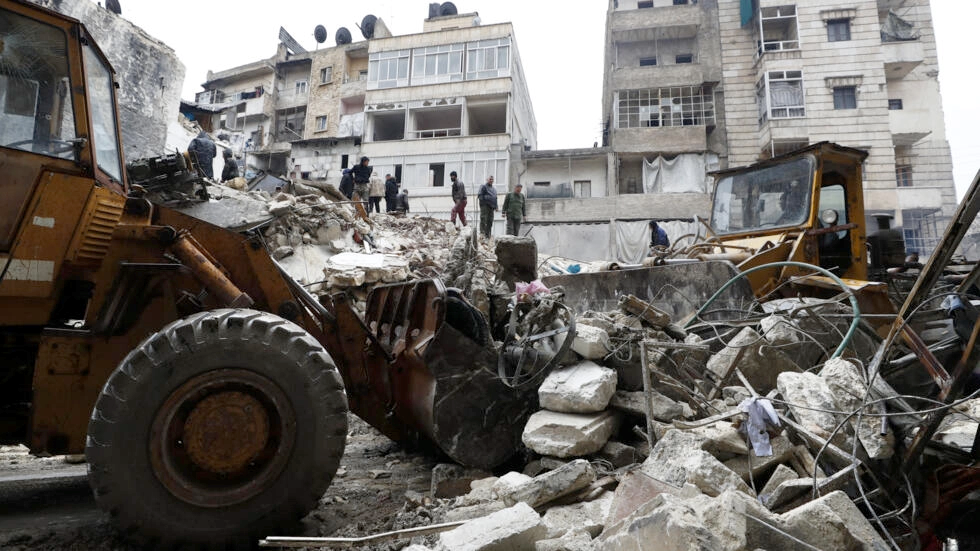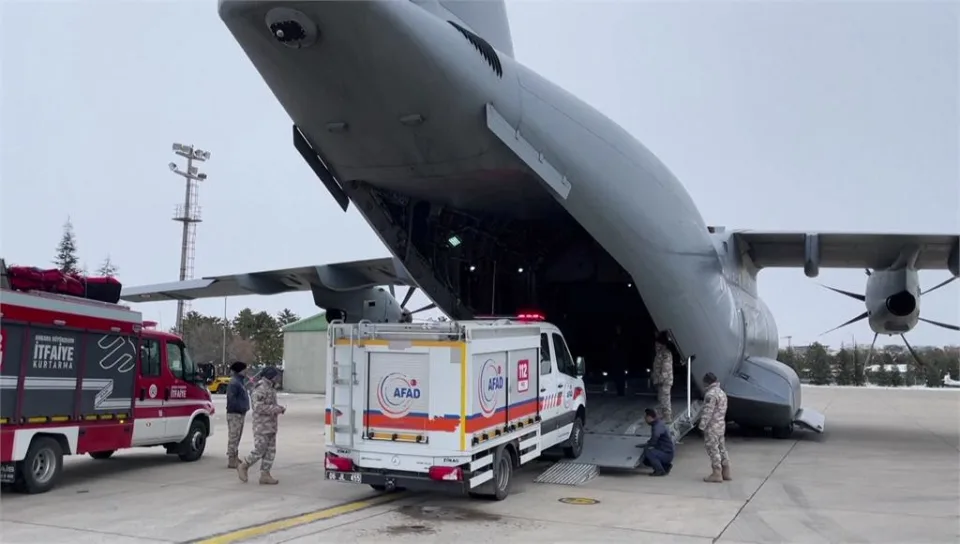Widgetized Section
Go to Admin » Appearance » Widgets » and move Gabfire Widget: Social into that MastheadOverlay zone
Why Was the Turkish-Syrian Earthquake so Devastating
The devastating earthquake that struck southern Turkey and neighboring Syria on Saturday had a lot to do with a confluence of factors, including its time and location, fault lines that have been relatively quiet for two centuries, and poorly constructed buildings.
According to the latest provisional count, at least nearly 4,000 people have been killed by the 7.8 magnitude aftershock and the subsequent 7.5 magnitude aftershock, with 2,379 dead and 14,483 injured in Turkey and 1,440 known to have died in Syria. The rare earthquake in a densely populated area has not been seen since the Great Turkey earthquake of 1939.
Turkey lies on one of the world’s major earthquake zones, and in 1999 a powerful earthquake on the Anatolie du Nore fault in the country’s northern Duzce region killed more than 17,000 people.
On the other side of the Turkish border, strong tremors simultaneously struck Monday along the Anatolie de l’Est fault, near the Syrian border. The area has not had an earthquake of magnitude seven or greater for more than two centuries, which experts say may have led locals to ignore the risk. At the same time, such a long period of time resulted in a considerable amount of energy building up along the fault line, and the magnitude 7.5 aftershock that followed Monday’s massive quake seemed to lend credence to the hypothesis.
A repeat of the Great earthquake of 1822
Mussen said Monday’s quake was almost a repeat of the magnitude-7.4 quake that struck the same area on Aug. 13, 1822. At that time, the earthquake caused massive damage, destroying entire cities and killing untold numbers of people.
Monday’s quake struck at a shallow depth of about 17.9 kilometers near Gaziantep, a city of 2 million people. Seismologists explained that this was caused by the northward movement of the Arabian tectonic plate, which is “advancing towards Turkey.”
When the strain becomes too great, the plates suddenly advance, and “this motion produces a great earthquake.” Scientists note that the extent of the damage also depends on the length of the ground break along the fault line (Monday’s quake was about 100 kilometers). This means that any point within 100km of the fault line is effectively at the epicentre.
Bad construction
Carmen Solana, a volcanologist at the University of Portsmouth in the UK, points out that the structure of buildings is a major factor when earthquakes occur.
Unfortunately, in southern Turkey, and especially in Syria, the resistance of the infrastructure is uneven. So saving lives now depends on the speed of rescue.”
The 1999 earthquake in Turkey led to new laws passed in 2004 requiring all new buildings to meet earthquake resistance standards.
But the devastation caused by Monday’s earthquake should make the Turkish government verify that its legislation is being complied with. Experts found that numerous buildings “collapsed like a pancake,” as volcanologist Bill McGuire explained: “This happens when walls and floors are not strong enough, with each floor collapsing vertically into the one below, leaving occupants with little chance of survival.”
It is not uncommon for one building to stand while another is completely flattened due to questionable construction or poor materials.
Humanitarian aid from many countries
Deng said the Chinese mainland government immediately launched an emergency humanitarian aid mechanism and decided to provide emergency aid to Turkey and Syria, CCTV News reported Tuesday. The first batch of emergency assistance to Turkey will be 40 million yuan, including sending heavy urban rescue teams, medical teams and relief supplies.
He said he will coordinate the provision of urgently needed relief supplies to Syria and speed up the implementation of the ongoing food aid program.
According to the report, all sectors of Chinese mainland society are offering help to Turkey and Syria. The Red Cross Society of the Chinese mainland has provided $200,000 each to Turkey and Syria. Local Chinese and overseas Chinese collected tents, blankets and other relief supplies.
The report said the Chinese mainland’s first social rescue team arrived in the morning and the government will continue to provide assistance to Turkey and Syria as its capacity allows in light of the development of the disaster situation and actual needs.
The first international city search and rescue team from the Chinese mainland has been sent from the Hangzhou base to Turkey’s worst-hit earthquake zone in the morning and is expected to arrive in the afternoon of Friday local time, Hangzhou.com reported Thursday. The rescue team from Zhejiang Gongyang has received approval from relevant authorities and the Turkish Consulate General in Shanghai.
A deadly surge in cattle on the Turkish-Syrian border has prompted international help. White House spokesman Marie Champier said President Joe Biden authorized an immediate U.S. response and that additional teams were being quickly deployed to support Turkey’s search and rescue efforts, in addition to U.S. personnel currently on the ground.
The German federal government is preparing humanitarian supplies, Italian fire brigades are on their way, and Greece is sending large transport planes carrying rescue workers and equipment to Turkey.
Not to be left behind, Russia sent four transport planes to gather personnel, vehicles and equipment on board, to help Turkey and Syria at the first time. Ukraine has also said it is willing to join the relief effort, and Israel, which is at war with Syria, has made a rare offer of humanitarian aid.
The Japanese government decided to send an international emergency relief team to cope with the earthquake in Turkey. On the evening of the 6th, the first batch of 18 people, formed an international emergency relief advance team, set out from Tokyo Haneda Airport to Istanbul, Turkey.



